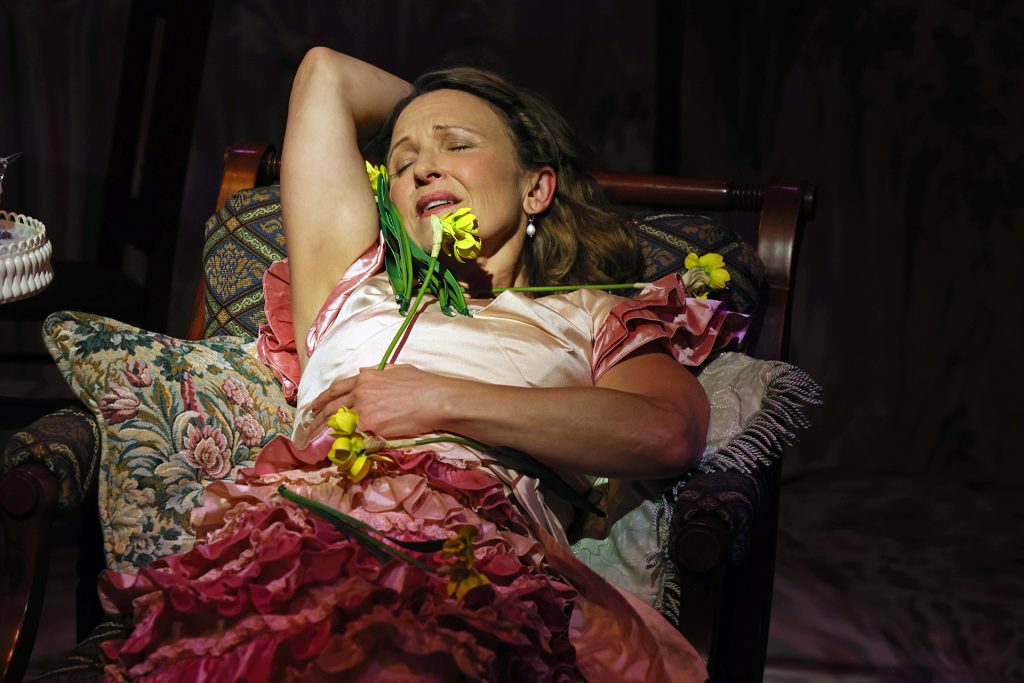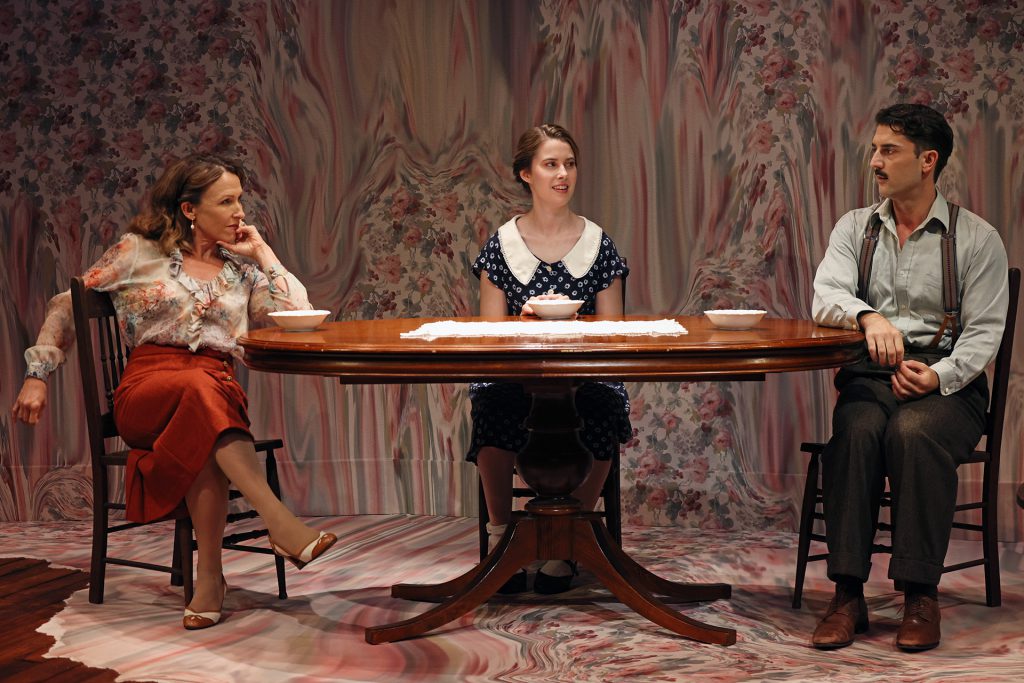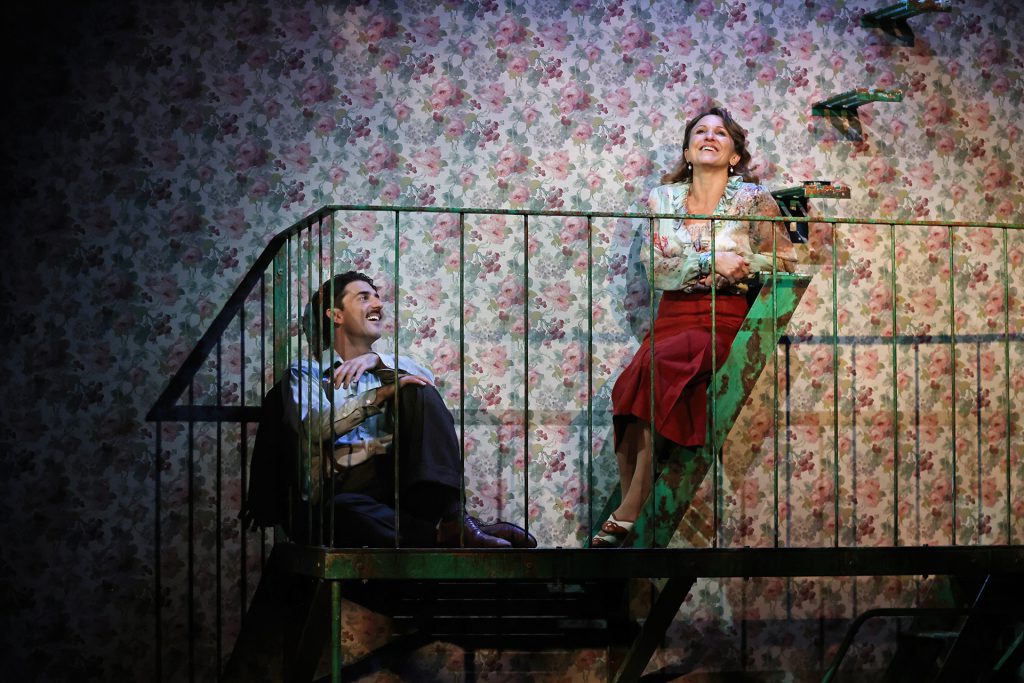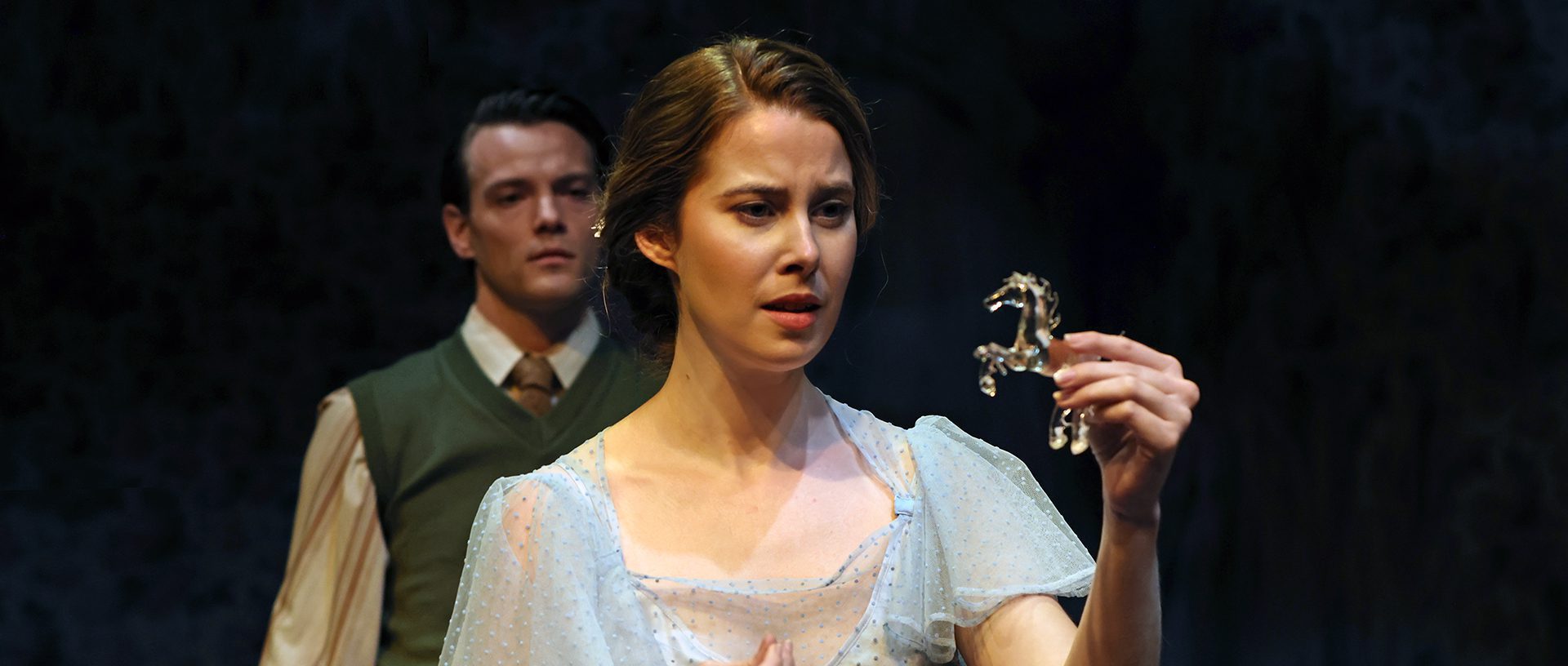A dazzling performance from Blazey Best carries this turbulent Tennessee Williams tale.
The Glass Menagerie, produced by Ensemble Theatre, depicts a world struggling with change. Written by Tenessee Williams and loosely based on his early life, the play’s characters yearn for the glory of the past while stuck in a depressing present and imagining a better future. The production’s ability to display both a sense of optimism and pessimism, through a strong ensemble cast and creative direction, indicates something delightfully simple: in many ways, this play is a microcosm of where society is today.
The Glass Menagerie draws on Tenessee Williams’ life experience. Set in a nondescript part of Southern America, Amanda Wingfield (Blazey Best) reminisces over her youth as a much-desired Southern Belle who, in her own personal tragedy, traded a luxurious lifestyle for one with an absent husband, underachieving son, and impaired daughter. Tom Wingfield (Danny Ball) is that son, working a monotone warehouse job while harbouring aspirations to write and travel. Laura Wingfield (Bridie McKim) is Amanda’s daughter, shy and anxious. Each character is inspired by Williams’ own family; Amanda represents his mother, Laura his sister (who suffered a botched lobotomy), and Tom a pre-fame Williams. The family’s despair over their situations culminates in moments of unity, disbandment and stagnation, as the play ends in a loose combination of all three.

Williams‘ script is a raw depiction of his dysfunctional life. It jumps quickly between moments of humour, pain and stasis, with elements of dark comedy, narration, autobiography, and catharsis. Where other productions would crumble under its demands, Ensemble Theatre manages to bring out the best of each.
Blazey Best is fantastic as Amanda Wingfield. She carries the production on her back, giving a mesmerising performance. Much of the suffering in this play comes from Amanda’s desire for perfection, which she uses as a tool to empower or disempower her family for her own edification. Best brings this dichotomous nature to life, at times playing Amanda as a concerned mother and at others as a cold, ruthless, hateful housewife. In doing so, and by nailing her Southern accent and comic dialogue, she makes the play the success it is.
The remaining Williams family members ebb and flow. Danny Ball ultimately gives an engaging performance as Tom, with his most powerful moments being the arguments he has with Best. At those times he brings a vivid intensity that electrifies the stage. However, he is less successful with his narratorial monologues (the script regularly has him describe a scene’s circumstances before the scene begins) and his Southern accent is not always consistent. Bridie McKim could make more of her limited action before the intermission but fortunately shines after that. After this rocky start, McKim captures Laura’s introversion in a graceful and nuanced manner, quickly becoming the story’s emotional heart.

Additionally, Tom Rodgers gives a brilliant performance as Jim O’Connor, a friend of Tom’s and a gentleman caller to Laura. Rodgers stunningly embodies everything each family member aspires to – Amanda’s longing for success, Tom’s desire for elocution, and Laura’s wish for confidence. His portrayal of Jim’s deception late in the play reinforces the theme of turbulence and leaves the audience feeling as fooled, and as hopeless, as the Wingfield family on stage.

Direction from Liesel Baddorek ties everything together. She keeps the play moving quickly such that its 2 and a half hour run time flies by. Her movement decisions allow the monologue-heavy script to have some life, although having characters perform from a balcony means audience members close to the stage have to regularly and uncomfortably crane their necks. The set (Grace Deacon) is blissfully period-piece and the way the characters interact with lighting (Verity Hampson) is novel, helping the production’s themes resonate.
Ultimately, The Glass Menagerie offers a compelling insight into a lost family. The past seemed better, the present less so, and the future uncertain – matching our current social and political climate. Though this production does not offer any answers, it shows us that we’ve experienced this type of thing before. How the story ends is up to us.
